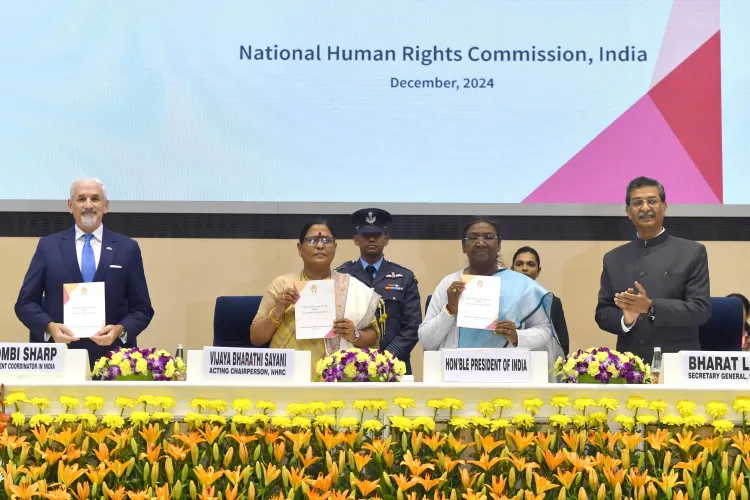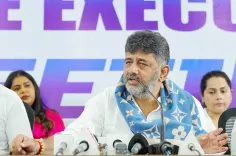President Murmu Emphasizes the Risks of Cybercrime and Climate Change to Human Rights

New Delhi, Dec 10 (NationPress) During the Human Rights Day event hosted by the National Human Rights Commission (NHRC) on Tuesday, the President of India, Droupadi Murmu, drew attention to the escalating threats that cybercrimes and climate change present to human rights.
“The digital age, while revolutionary, has brought forth intricate challenges such as cyberbullying, deepfakes, privacy issues, and the dissemination of misinformation. These challenges highlight the pressing necessity to establish a safe, secure, and just digital environment that protects the rights and dignity of every individual,” President Murmu stated.
She emphasized the worldwide effects of climate change on human rights, saying, “Polluters from distant times and places are now influencing the lives of individuals elsewhere and for future generations. India, representing the Global South, has taken the initiative in climate action.”
President Murmu referenced programs like the 2022 Energy Conservation (Amendment) Bill, the Green Credit Initiative, and the LiFE (Lifestyle for Environment) Movement as proof of India's dedication to fostering a sustainable future.
When discussing the implications of Artificial Intelligence (AI) on human rights, she remarked, “AI has become part of our everyday lives, resolving issues while also introducing new challenges. The discourse on human rights has traditionally considered a human violator, influenced by emotions such as compassion or guilt. With AI, we confront a scenario where the violator might be a non-human, intelligent entity.”
She expressed worry over the increasing mental health challenges, particularly among children and youth, urging stakeholders to tackle the rising stress and ensure proper support systems.
In addressing business leaders, she stated, “The growing gig economy must not undermine the mental health of workers. As we adapt to new economic models, the welfare of vulnerable sectors should remain a top priority. We must strive to eradicate the stigma surrounding mental illness, enhance awareness, and provide assistance to those in need.”
President Murmu called for joint efforts to uphold justice, equality, and dignity. “On Human Rights Day, we must reaffirm our dedication to these principles. Through persistent efforts and unity, we can shape a future where every person, irrespective of age, background, or situation, leads a life of dignity and opportunity,” she commented.
She praised India's rich civilizational legacy of empathy, compassion, and community cohesion.
President Murmu recognized the proactive involvement of the NHRC, State Human Rights Commissions (SHRCs), civil society organizations, and human rights advocates in addressing violations, raising awareness, and pushing for policy reforms to defend marginalized communities.
Human Rights Day is recognized each year on December 10 to honor the adoption of the Universal Declaration of Human Rights (UDHR) by the United Nations General Assembly in 1948.






